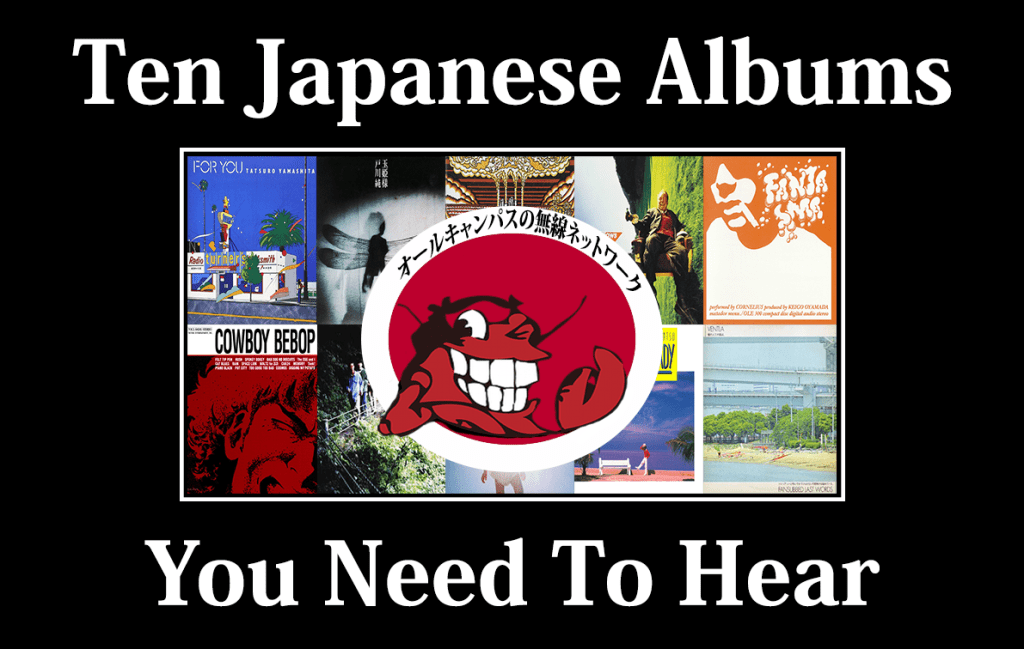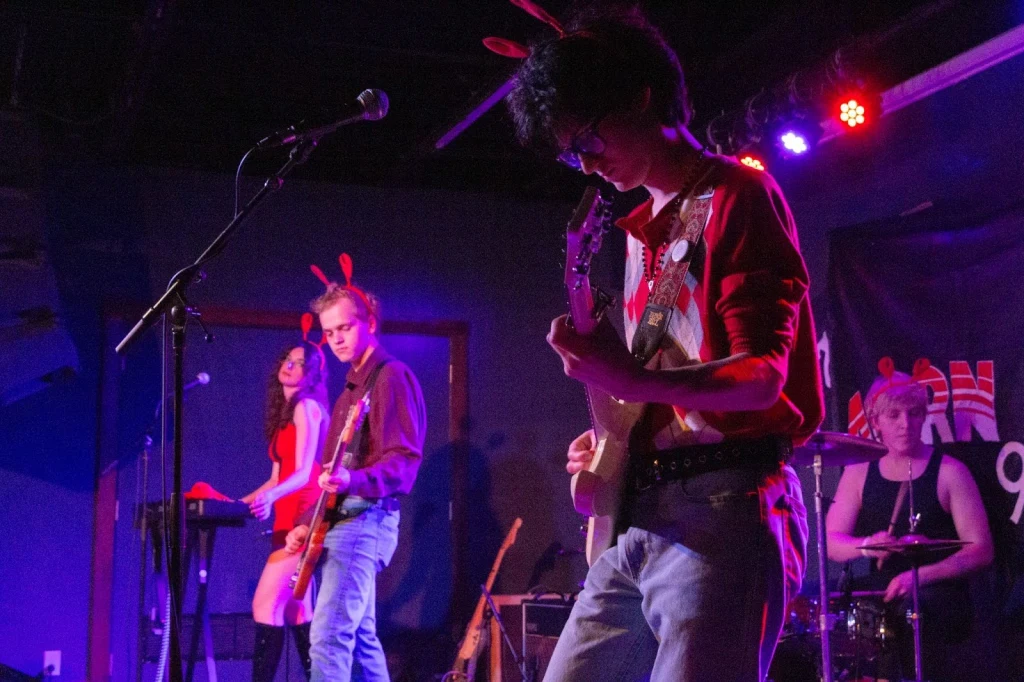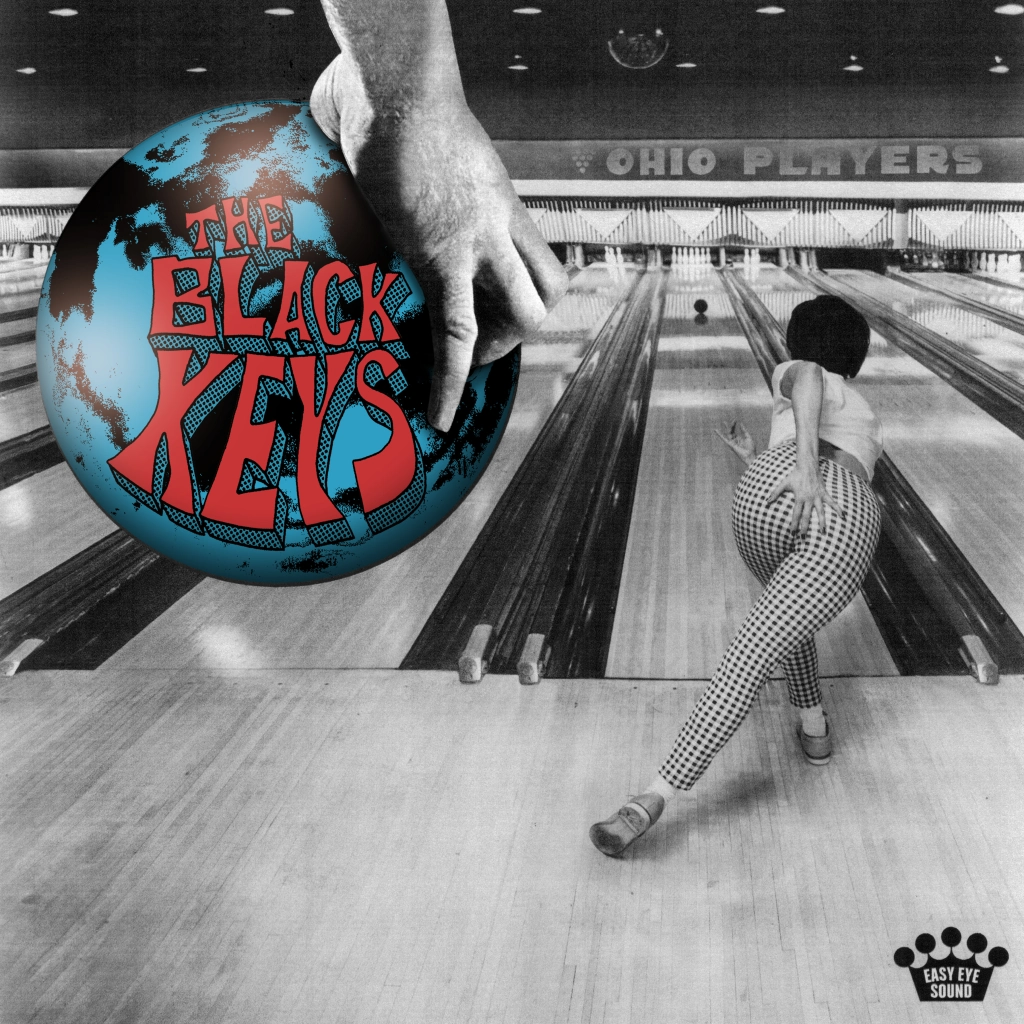By Eli Schoop, Copy Editor
In the pantheon of music, non-Western countries have been neglected due to language barriers and the lack of media channels available in other nations. This has been changing because of the massive impact of K-Pop, but it still doesn’t have the type of thematic depth and relevance of say a Kanye or Beyoncé. Japan may be one of the most magnified Eastern countries in terms of its media and cultural scope, but a lot of its music goes unrecognized in the West, and that’s a damn shame. If you’ve never heard any of these albums, do yourself a favor and 教育を受ける.
Toshiki Kadomatsu – SEA IS A LADY
One of Japan’s most unsung contributions to music is city pop. The genre emerged in the early 80s as a musical equivalent to the social and cultural boom the country had from economic prosperity following technology influxes. It’s an idealistic sound filled with beach samples and pretty girls living a life of joy, and Toshiki Kadomatsu staked his claim as a master of city pop with SEA IS A LADY in 1987. Glistening synths, soaring harmonies, pristine rhythms, this is an encapsulation of a nation’s imagery almost no other record can match.
Boredoms – Vision Creation Newsun
Boredoms ended rock as a concept. This is barely hyperbole. We’ve grown used to rock being stated as dead or painstakingly revived but in 2000, the most batshit insane, blindingly-paced hydrogen bomb was sent to us straight from Japan, destroying any boring notion of the format coming back to life. Rock was dead on sight. Vision Creation Newsun is its final form, an antibody to the lifeless bacteria of guitar-based music, and a symbol of pure destruction left in its wake. It’s the Katamari of modern life; get out of its way, or be rolled over by profound force.
The Seatbelts – Cowboy Bebop OST
Spaghetti western as the cosmic ballet. Cowboy Bebop is the epitome of a collaboration; the mash-up of the space-age noir piece with bebop and a slick cowboy style of jazz. If it didn’t exist already, it’d be necessary to invent it. Shinichiro Watanabe was the mastermind behind the show, but Yoko Kanno’s Seatbelts are the true stars with this brilliant soundtrack. The theme song alone is worthy of a shrine, however, there’s enough ingenuity and splendor here to round out the entire 26 episodes. Spike may have eventually been left to the void (spoilers), but yet, Kanno did not allow his heartbreak to go in vain.
Cornelius – Fantasma
Shibuya-kei was a uniquely Japanese phenomenon consisting of lounge kitsch worship transformed into a manic sampling free-for-all. The best example of the genre came from Keigo Oyamada aka Cornelius, a production wizard on par with the Phil Spector’s and Brian Wilson’s of the world, wielding his magic wand on sounds and melodies like some sort of musical Tetris god. Fantasma combines all the joy and wonderment of a Bubble Tape puck with a kinetic symbiosis akin to a symphonic Petri dish. If Disneyland wasn’t so saccharine and scrubbed-over, it’d probably sound like this.
ventla – fansubbed last words
Little vignettes of Japanese life wrapped up in neat MIDI synths. ventla is a clay modeler from Tokyo who, in his spare time, composes electronic music with a myriad of different instruments as noted by the expansive list on his Soundcloud. His occupation informs his style too: humble, expressive, tapping into the day-to-day joys and whims we all share while infusing a sense of fantasy and pizzazz. fansubbed last words are the elevator music of the mundane dream, the soundtrack to your imaginary anime, and it’s crafted with a magic few artists can touch.
Jun Togawa – Tamahime-sama
Drawing from traditional Japanese folk music and an eccentricism uniquely her own, Jun Togawa is a living art-pop legend. Her magnum opus Tamahime-sama is both futuristic and nostalgic, retaining the showmanship tradition of Japanese performance while combining a digital spirit to forge her path into the pantheon of pop. The title track is also a collaboration with the avant-garde behemoth Haroumi Hosono, showcasing the unique power of the Japanese music scene at that time, but Togawa was in a league of her own when it came to trailblazing a raucous disposition into the charts of Japan’s top 40.
3nd – View From Here
Math rock is an odd little subgenre that doesn’t really get much press. The stereotype of its practitioners include guys who are more interested in their effects pedals and tremolos than writing coherent music. 3nd bucked this trend by cramming neat melodies with the filthiest bass licks and hardest drumming known to man. Just listen to “Clockworker”. It’s an unrelenting track that’s carried by their bassist, who performs superhuman feats and could probably power half of Tokyo with his instrument. View From Here is only 6 songs, but great moments are strewn all throughout the album executed by dudes who exude passion and enthusiasm in their art.
Tatsuro Yamashita – For You
Another essential city pop pioneer, you may know Tatsuro Yamashita for having been gratuitously sampled by countless vaporwave songs. His album For You is so much more than that though, providing peerless A&R pop mirroring Burt Bacharach or Carole King while being funkier than both composers. Yamashita utilizes his supporting cast brilliantly, smoothly weaving between the angelic female harmonies and roaring horns to effectuate the radiant pop songs he sings. The album’s cover also impeccably represents the content inside, featuring sparkling artistry dedicated to an idyllic summer. It’s a feel-good album for the ages and one that can create a sunny day in the middle of December.
Fishmans – Long Season
Do you remember the first time you heard In the Aeroplane Over the Sea? How about Spiderland? The feeling of finding out about a cult classic is second-to-none, and I think it’s fair to say that Fishmans’ Long Season deserves to be held in the same regard as these masterpieces. Created around a cyclical melody streamlining the album as a single 35-minute song, the dreamlike stupor produced by the band is otherworldly. Rarely is it possible to hypnotize seasoned music listeners, as cynicism and skepticism abound in a world of critics. Long Season, however, is an experience even the most contrarian of listeners will be entranced by, and for that, it’s a stunning gem.
The Pillows – Happy Bivouac
The most straightforward yet nonetheless immaculate album on this list, Happy Bivouac exists as an alt-rock classic with crossover appeal that mirrors the Pixies and Weezer. Most famous in the West for soundtracking FLCL (with several of this LP’s songs no less), The Pillows are a beloved trio in Japan famous for their workmanlike output, and this record stands as the best of the bunch. It’s energizing, galvanizing rock that’s no-frills, and while this sounds like Rolling Stone-esque curmudgeon talk, the Pillows pull it off with splendor and animated emotion unlike any other band of their time. Happy Bivouac brings riffs, it brings sing-alongs, and it brings boundless energy; all rock really needs.





Leave a comment